EXPERT
Issues
Locations
DOWNLOAD
Disclaimer: The VRIC Monitor does source a limited amount of media reports from state-owned or -controlled media outlets from VRIC nations. These media reports are carefully selected and solely intended to report on cultural, diplomatic, economic, or military activities that are not reported on by other media and relevant for understanding VRIC influence in the region. Given the inevitability that state propaganda will be mixed into these articles, we ensure that reporting from state-media outlets is no more than 20 percent of the overall VRIC Monitor and exclude any opinion pieces or anti-US (anti-West) declarations of any kind.
OVERVIEW
In September, the United Nations General Assembly (UNGA) became a political battleground for Great Power Competition. Iran and Venezuela received both the scorn from some Western nations and solidarity from others aligned with the VRIC. Both were subject to scrutiny from the UN prior to the virtual meeting, as snapback sanctions on Iran were formally reimposed by the United States while the UN Human Rights Council reminded the international community of the brutal nature of the Maduro regime through a report citing the regime’s crimes against humanity.
Nonetheless, Iran is still shipping fuel tankers to Venezuela. The final ship, in a flotilla of three vessels, just entered Venezuelan waters this past weekend. Iran’s most recent fuel tankers took extra precautions to traverse international waters undetected, including a new seafaring route around South Africa. These fuel shipments, the second Iran has sent to Venezuela this year, could be a preamble for weapons shipments to the Maduro regime after the UN arms embargo on Tehran expires on October 18th. Before Venezuela embraces an empowered Iran, Juan Guaidó is making another push to oust Maduro, calling for nationwide protests in Venezuela and an international call to action to enact the UN’s Right to Protect (R2P) charter.
China and Russia took the opportunity at the UNGA to initiate a sort of coronavirus Cold War against the U.S. promoting their new, untested COVID-19 vaccines during the virtual gathering. This medical diplomacy is a gateway for VRIC nations to enhance its political and economic influence in Latin America, as some nations have already signed deals to test the Chinese and Russian vaccines. The U.S. is challenging this and closing in economically on the VRIC in Latin America, with the recent election of Mauricio Claver-Carone to head the Inter-American Development Bank, the first American to do so in the bank’s history. Secretary of State Mike Pompeo congratulated Claver-Carone then set off to take the first-ever U.S. secretary-visit to Guyana and Suriname, signing new agreements, and shoring up old allies, Brazil and Colombia, in a South American trip that further pushed back against the VRIC.
With U.S. elections looming in November, the VRIC may have its own “October surprise” ready after the 18th. Aside from a potential arms transfer from Iran to Venezuela, Maduro’s ally, Evo Morales, may return to Bolivia if his political party, the Movement Toward Socialism (MAS) wins its presidential bid in the first round on October 18th. Chile’s referendum on rewriting its constitution follows shortly after, while Peru, Colombia, Paraguay, Mexico, Central America, and others are facing heightened political turmoil and social unrest. This month is critical to see if the security landscape in the Americas will change.
MUST READS:
- The Maduro-Hezbollah Nexus: How Iran-backed networks prop up the Venezuelan regime by SFS Executive Director Joseph Humire, Atlantic Council
- How Hezbollah Collaborates With Latin American Drug Cartels by FDD Senior Fellow Emmanuele Ottolenghi, The Dispatch
- Hezbollah’s Transnational Hunger War Tactics by Astrid Mattar Hajjar, New English Review
- Smuggler of Iranian Migrants Busted as Iran Threatens to Hit U.S. for Assassinating Top General by Todd Bensman, Center for Immigration Studies
- Iran’s Advances in Latin America by Gabriel Andrade, Middle East Quarterly
- What Is Iran Up To in Latin America? by Lindsay Gabow, The Defense Post
- Could Iranian Missiles Be Soon Headed To Venezuela? by Josh Chang, The National Interest
- How to make a billion dollars disappear: José Luis Merino and El Salvador by Douglas Farah, IBI Consultants
- Venezuela: UN report urges accountability for crimes against humanity by the UN Human Rights Council
- Russia, Iran Expand Military Cooperation Against US and Europe in Gulf by Paul Goble, The Jamestown Foundation
TRUMP ADMINISTRATION ON VENEZUELA
- TREASURY: OFAC updates its previous designation of Nicolás Maduro to add Venezuela’s recent activities with Iran
- TREASURY: Amends Regulations to Restrict Revenue Sources to the Cuban Regime
- TREASURY: Continues Pressure on Illegitimate Regime Officials Undermining Democracy in Venezuela
- STATE: Congratulating Mauricio Claver-Carone as the new President of the Inter-American Development Bank
- STATE: Travel to Suriname, Guyana, Brazil, Colombia, and Texas, September 17-20, 2020
- STATE: The United States Responds to the Maduro Regime’s Attempts to Corrupt Democratic Elections in Venezuela
- STATE: Briefing With Special Representative for Iran and Venezuela Elliott Abrams On Developments in Iran and Venezuela
- JUSTICE: State-Sponsored Iranian Hackers Indicted for Computer Intrusions at U.S. Satellite Companies
- JUSTICE: U.S. Seizure of Three Websites Used by Iranian Front Company that Was Shipping Fuel on Four Tankers to Venezuela
- SOUTHCOM: Podcast on Enhanced Counter Narcotics Operations
- SOUTHCOM: USS William P. Lawrence Freedom-Of-Navigation Operation Challenges Venezuela’s Excessive Maritime Claim
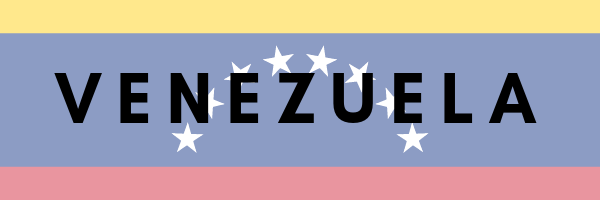
At the United Nations General Assembly in September, Venezuela’s Nicolás Maduro lambasted the U.S. maximum pressure strategy against his regime. Prior to this, the UN Human Rights Council released a damning report citing the Maduro regime’s crimes against humanity, documented by an independent fact-finding mission. The UN report condemns Maduro as a war criminal, prompting Venezuela’s Interim President Juan Guaidó to urge the international community to invoke the Right to Protect (R2P) charter of the UN. This call to action comes as Venezuela erupts with increasing protests and demonstrations due to the lack of fuel, water, and electricity throughout the country. Meanwhile, Iran has sent another batch of tankers to Venezuela with approximately 850,000 barrels of gasoline, in another clear violation of U.S. sanctions. Using new seafaring routes, around southern Africa, and staying dark for most of the voyage, Iran’s fuel shipments to Venezuela are likely testing the waters for when the Islamic Republic will declare its return to the international arms industry, after October 18th, prompting a sanctions standoff between the United States and the United Nations.
October 18th also marks the date for the first round of presidential elections in Bolivia. President Jeanine Añez recently dropped out of the race in an attempt to coalesce the anti-MAS vote. The Movement Toward Socialism (MAS) candidate, Luis Arce, leads the polls followed by the former president, Carlos Mesa. Unless circumstances change, there is a chance that Luis Arce wins the presidency in the first round which would place Bolivia back in the hands of Evo Morales and the VRIC alliance.
A week after the Bolivian election, Chile will also take to the polls on October 25th in a public referendum vote on whether to rewrite its constitution. All of the transitions to authoritarian rule in ALBA nations, namely Venezuela, Nicaragua, and Bolivia, began with a constituent assembly. Peru and Colombia are also facing severe political challenges, while Central America, in the midst of a pandemic, becomes, once again, overrun with migrant caravans. Seemingly disconnected, these simultaneous regional events have the potential to pave the way for increased instability in October that’ll likely be exploited by the Bolivarian Network.
- The United States Navy said it had undertaken an operation off the coast Venezuela in an effort to challenge the South American country’s “excessive maritime claims in international waters.” – Yahoo News on 01-OCT
- Venezuela’s state-run oil firm PDVSA is informing customers about a new hub for doing ship-to-ship transfers for exports in a location away from shore, a shift that could mean higher costs and less supervision, according to three sources. – Reuters on 01-OCT
- The second of three ships loaded with gasoline from Iran approached fuel-starved Venezuela amid simmering social unrest over a lack of goods and services that has sparked protests across the South American nation. – AP News on 30-SEPT
- The President of the Venezuelan National Assembly Juan Guaidó requested to the 75th General Assembly of the United Nations that member states evaluate the implementation of direct international assistance mechanisms to restore democracy in Venezuela, through the commitment of the Responsibility to Protect (R2P). – El Pitazo on 24-SEPT
- Though the mandate legalizes mining, all residents who want to mine Bitcoin must first obtain a license from SUNACRIP, Venezuela’s National Superintendency of Crypto Assets and Related Activities. – Crypto Briefing on 24-SEPT
- On September 23rd, the Uruguayan government expressed its support for the extension of the mandate of the United Nations (UN) investigation into human rights violations in Venezuela, signaling an expected foreign policy shift under President Luis Alberto Lacalle Pou. – Latin News on 24-SEPT
- UN investigation into Venezuela’s human rights record has uncovered gross violations and abuse ordered and committed at the highest level of the Maduro regime, accusations angrily dismissed by Venezuelan authorities. The report by the Independent International Fact-Finding Mission on Venezuela has been submitted to the UN Human Rights Council. – Voice of America on 23-SEPT
- U.S. Secretary of State Mike Pompeo wrapped up a tour, on September 20th, of four South American countries–Colombia, Brazil, Guyana, and Suriname— three of them neighbors of Venezuela, whose socialist government is under intense U.S. pressure. – Associated Press on 19-SEPT
- State media reports countries such as Iran, Russia, China, Cuba, and South Africa were invited by the National Electoral Council (CNE) of Venezuela as observers and international companions for the December 6th elections. – AVN Titulares via Twitter on 18-SEPT (content in Spanish)
- Venezuela’s authoritarian government claimed that it had dismantled a covert operation to blow up power plants and oil facilities to destabilize the socialist state, saying it had detained eight plotters including an American traveling with heavy arms, explosives, surveillance footage, and cash. – The Washington Post on 14-SEPT
- Venezuelan opposition MP Américo De Grazia issued a statement on social media saying the Maduro regime has allowed the terrorist group National Liberation Army (ELN in Spanish) to control mining activities and drug trafficking in the Orinoco Mining Arc. – Mining.com on 13-SEPT
- The Venezuelan government will start a fuel distribution initiative and is planning new refining projects amid acute gasoline shortages, a restructuring commission for state-owned Petroleos de Venezuela (PDVSA) said. – Reuters on 11-SEPT
- Venezuela’s capacity to produce some much-needed gasoline and diesel of its own hinges on a single oil play. To tap it, the Maduro regime is willing to cannibalize the country’s crumbling energy infrastructure to pay contractors with scrap metal. – BNN Bloomberg on 11-SEPT
- Venezuela is blocking access to currency exchange platforms, reported a digital rights advocacy group of the country. According to VE Inteligente, the Maduro regime is not allowing its citizens to access the U.S. cryptocurrency exchange Coinbase and the remittance platform MercaDolar. – Bitcoin Exchange Guide on 09-SEPT
THE BOLIVARIAN NETWORK
- A migrant caravan of about 2,000 Hondurans is now passing through Guatemala in hopes of reaching the U.S.-Mexico border, despite the risks posed by the coronavirus pandemic and threats from the country’s president to “detain all those who entered illegally.” – Fox News on 02-OCT
- Some 3,000 Honduran migrants entered Guatemala on a land border on October 1st, after breaking a military fence. They intend to reach the United States on foot, amid the coronavirus pandemic. – Prensa Libre on 01-OCT (content in Spanish)
- A court in Ecuador has issued a request to the Belgian authorities to arrest former president Rafael Correa, who is living in exile in Belgium, and deliver him to the Ecuadorian justice system. – The Brussels Times on 24-SEPT
- Bolivian President Jeanine Añez pulled out of the nation’s presidential election race a month before the vote. Añez said her decision was aimed at preventing former President Evo Morales’s socialist movement MAS from benefiting from division among its opponents. – Bloomberg on 17-SEPT
- President Martín Vizcarra of Peru survived an impeachment vote, ending a congressional battle that had threatened to plunge the country into a constitutional crisis amid a devastating pandemic. – New York Times on 18-SEPT
- On September 13th, the opposition group Alianza Cívica por la Justicia y la Democracia (ACJD) declared a “national political alert” in Nicaragua, warning of an escalation of repression by the government led by President Daniel Ortega. – Latin News on 14-SEPT
- Two days of protests in Colombia over the death of a man in police custody have left 13 people dead and over 400 injured. – ABC News on 11-SEPT
- El Salvador’s President Nayib Bukele is facing distinctly uncomfortable questions after the online investigative newspaper El Faro published an incendiary report which alleges, since taking office in June 2019, his government has been involved in private negotiations with one of El Salvador’s main street gangs, Mara Salvatrucha (MS-13). – Latin News on 10-SEPT
- A judge in Bolivia has ruled that former president Evo Morales is not eligible to run for a Senate seat in October’s elections, the government has confirmed. – Buenos Aires Times on 08-SEPT
- An Ecuadorian court upheld an eight-year prison sentence against former President Rafael Correa for breaking campaign finance laws, blocking him from participating as a vice-presidential candidate in the 2021 election. – Reuters on 07-SEPT
- Brazil declared 29 Venezuelan diplomats, loyal to Maduro, personae non-gratae, in the latest sign of support for opposition leader Juan Guaidó. – Bloomberg on 04-SEPT
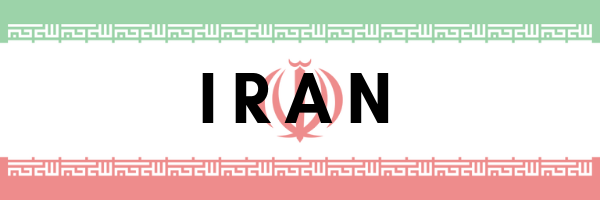
Pressure is mounting on the Iranian regime since September 20th, when the U.S. formally re-imposed previous UN sanctions on Tehran following its notification to the Security Council of Iran’s nuclear agreement violations a month prior. Moreover, Treasury’s Office of Foreign Assets Control (OFAC) updated its 2017 sanctions on Nicolás Maduro to include his cooperation with Iran. Despite this, Iran sent another four tankers to Venezuela with a reported 850,000 barrels of fuel, openly defying U.S. sanctions and using a new route and evasive tactics to avoid triggering an international sanctions tripwire. Meanwhile, Iran negotiates arms agreements with China and Russia, in anticipation of the October 18th expiration of the arms embargo against Tehran.
Iran and Venezuela are aiming for their own “October surprise” with a possible arms transfer after October 18th. The Islamic Revolutionary Guard Corps (IRGC) has been building for this moment in Latin America for the last fifteen years. The FinCEN Files recently revealed that for at least five years, between 2010-2015, Mexico served as a base for a Chinese businessman accused of helping finance a secret missile program in Iran. Mexico’s flirting with Venezuela’s Maduro regime can bring Iran closer to the U.S. southern neighbor. U.S. Immigration and Customs Enforcement (ICE) and Brazilian federal agents recently dismantled an Iranian human smuggling ring in South America responsible for transporting Special Interest Aliens (SIA) to Canada and Mexico from Brazil. While it is unknown if any of these Iranian SIAs traversed the U.S. southwest border, the new caravans forming in Central America should be carefully scrutinized for this activity.
- The final vessel in a flotilla of three Iranian fuel tankers entered gasoline-starved Venezuela’s waters on Saturday, in the latest sign of cooperation between the two countries amid protests over shortages in the South American nation. – Reuters on 03-OCT
- Iran offered to help Venezuela expand its military and internal security capabilities. The Islamic Republic and Nicolás Maduro’s regime have cooperated in 2020 to mitigate their economic crises and undermine US sanctions. – Critical Threats on 30-SEPT
- The United States blacklisted several Iranian officials and entities over alleged gross violations of human rights, including slapping sanctions on a judge it said was involved in the case of an Iranian wrestler sentenced to death. – Reuters on 24-SEPT
- After defying U.S. sanctions by shipping a cargo of oil condensate to Venezuela, Iran is using the same ship to help the Latin American country export its crude. The Iran-flagged supertanker Honey, also known as Horse, is loading Venezuela’s top exported grade Merey 16 at Venezuela’s government-controlled port of Jose. – World Oil on 23-SEPT
- Cheng Mingfu, a Chinese businessman accused by the United States of financing the development of a secret missile program in Iran, has made transactions from Mexico of alleged money laundering, U.S. government reports reveal. – Mexicanist on 22-SEPT
- State media reports Iranian Ambassador to Brazil Hossein Qaribi and Governor of the Mato Grosso State of Brazil Mauro Mendes met in Brasilia to underline the need to develop bilateral relations in the fields of agriculture, extraterrestrial agriculture, and agricultural products. – Fars News on 20-SEPT
- Officials from Iran and Brazil have made arrangements for a series of online meetings that would result in three cooperation agreements in agriculture. Brazil’s ambassador to Iran, Rodrigo de Azeredo Santos, and head of the Public Relations Department of the Iranian Ministry of Agriculture held a meeting in Tehran as part of cooperation between the two countries in the agriculture and farming industries. – Iran Front Page on 16-SEPT
- An oil tanker is discharging Iranian condensate for Venezuela as both countries continue to avoid U.S. sanction tripwires. The ship is identified in internal documents as Honey, according to a report and a person with knowledge of the situation. The tanker’s actual name is Horse, according to a document. The Iran-flagged supertanker, which turned off its satellite signal on August 7th, started unloading about 2 million barrels of South Pars condensate at Venezuela’s state-controlled port of Jose. – Bloomberg on 14-SEPT
- State media reports the Embassy of Iran in Uruguay in collaboration with the Culture House of the city of Paysandú organized the exhibition of “Iran, a piece of heaven on earth.” The exhibition was held in the framework of plans to introduce the cultural and civilizational manifestations of Iran. – IRNA on 11-SEPT
- State media reports the Director of the National Museum of Iran met and held talks with the Ambassador of Nicaragua to Tehran, conferring on the expansion of cultural relations. In a meeting at the National Museum of Iran, Jebreil Noukandeh and Isaac Lenin Bravo discussed developing cultural ties in the field of Museums. – Mehr News on 10-SEPT
- The alleged leader of a major human smuggling organization that had smuggled individuals from the Middle East (primarily Iran) into South America, the United States, Canada, and Europe was arrested Saturday. U.S. Immigration and Customs Enforcement (ICE) provided significant assistance to the Brazil Federal Police to arrest Reza Sahami, a dual citizen of Canada and Iran, on human smuggling charges. – U.S Immigration and Customs Enforcement on 10-SEPT
- Gasoline shortages have returned to Venezuela, sparking mile-long lines in the capital as international concerns mounted that Iran, yet again, may be trying to come to the South American nation’s rescue. Samir Madani, a co-founder of the independent oil tracking firm TankerTrackers.com, said it is possible the three ships could make the entire journey to Venezuela with their transponders off. – Associated Press on 08-SEPT
- Another round of Iranian oil shipments to Venezuela has been identified, in what analysts see as a test of how the U.S. will react. Reporting from tracking service TankerTrackers indicates three Iranian owned and flagged vessels have left Iran with a suggested routing to Venezuela via the Suez Canal. – Tradewinds on 08-SEPT
- State media reports Iranian Ambassador to Brasilia Hossein Gharibi congratulated the 198th anniversary of Brazil independence, saying the Iran-Brazil parliamentary friendship group resumed activities in the National Congress of Brazil. The new group consisting of 93 senators and representatives from different political parties resumed its activities after a two-year closure. – IRNA on 07-SEPT
- The U.S. government announced it had seized three websites connected to alleged front companies used by Iran’s Islamic Revolutionary Guards Corps (IRGC) to arrange “a multimillion-dollar fuel shipment” bound for Venezuela. – Middle East Monitor on 02-SEPT
HEZBOLLAH
- Congressional Republicans are preparing a package of new sanctions on the Iranian-backed terror group Hezbollah, an effort they told the Washington Free Beacon will cut off the group’s access to key funding sources. – Washington Free Beacon on 01-OCT
THE NISMAN/AMIA CASE
- Alberto Fernández gave his first address before the United Nations 75th General Assembly and highlighted Argentina’s condemnation of terrorism “in all its expressions.” In line with this, he recalled the 26-year-old attack on AMIA and called on the Iran authorities to “cooperate with Argentine judicial authorities to advance the investigation.” – Infobae on 22-SEPT (content in Spanish)
TURKEY
- Hayri Küçükyavuz, a Turkish businessman who has lived in the Venezuelan capital of Caracas for 26 years, says he believes his chance of being elected in the South American country’s upcoming elections “is pretty high.” – Daily Sabah on 16-SEPT
- Henrique Capriles Radonski and Stalin González, leaders of the opposition, decided to play against the legitimate National Assembly of Venezuela and to negotiate a supposed parliamentary election with the Maduro regime. For this purpose, they went to Turkey. – PanAm Post on 04-SEPT
EMBASSY TO JERUSALEM
- Honduran President Juan Orlando Hernández declared his intention to relocate his country’s embassy in Israel from the city of Rishon LeTsiyon to Jerusalem. The leader of the Central American nation made the announcement following a telephone conversation with Israeli Prime Minister Benjamin Netanyahu. – TV 7 Israel News on 21-SEPT
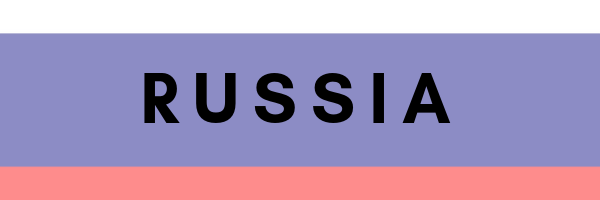
Russia is in a renewed Cold War with the West over the coronavirus. In recent months, Moscow has been aggressively promoting its new COVID-19 vaccine to Latin America, called Sputnik V. Nicolás Maduro has openly welcomed the Russian vaccine, stating that Venezuela’s National Assembly candidates must be vaccinated to “ensure a safe election.” Foreign Minister Delcy Rodriguez confirmed that Venezuela received Latin America’s first shipment of Sputnik V and the vaccine will be used in clinical trials in Caracas.
While ratcheting up the rhetoric about its vaccine, Russia is also flexing its VRIC military muscle through war games and future naval operations. Russia and Iran recently agreed to conduct joint naval exercises in the Strait of Hormuz, coming off the heels of the Sino-Iranian strategic partnership and China and Iran’s participation in the 2020 Kavkaz War Games in southern Russia’s Astrakhan region. Belarus, a country in political turmoil, also participated in the games. Amidst mass protests against the disputed president, Alexander Lukashenko, the Belarus opposition echoes the Venezuela crisis and the foreign manipulation and support from the Kremlin to the two ravaged nations.
Russia’s foreign meddling in Latin America extends to Nicaragua. President Daniel Ortega’s new “foreign agents” law has been described as a carbon copy of Vladimir Putin’s 2012 law requiring any non-profit organization or media outlet receiving international support to register as foreign agents. A law the Ortega-Murillo regime will undoubtedly use to intensify its crackdown on Nicaraguan opposition and press.
- If the case of the new “foreign agents” law in Nicaragua sounds eerily familiar, it is. Managua appears to have advanced a carbon copy of Russian President Vladimir Putin’s 2012 law, which requires non-profit organizations and media outlets receiving any sort of foreign funding to register and declare themselves as foreign agents. – American Enterprise Institute on 02-OCT
- Venezuela has received a shipment of the Russian-made Sputnik-V vaccine against the coronavirus, Venezuelan Vice President Delcy Rodríguez said. The delivery is the first in Latin America and will allow Venezuela to participate in clinical trials of the vaccine, Rodriguez said in a televised statement from the country’s main airport. – U.S. News on 02-OCT
- NtechLab, a startup that helps analyze footage captured by Moscow’s 100,000 surveillance cameras, just closed an investment of more than RUB 1 billion ($13 million) to further global expansion. The company currently boasts clients in 30 cities across 15 countries in the Commonwealth of Independent States (CIS) bloc, Middle East, Latin America, Southeast Asia, and Europe. – TechCrunch on 29-SEPT
- Russian state corporation Rosatom is considering the acquisition of lithium mineral assets in Africa and Latin America and plans to process the extracted metal in Russia, with the saleable products marketed globally. This is in a bid to become a noticeable player in the global market. – S&P Global on 25-SEPT
- State media reports Russia’s Foreign Ministry announced a meeting on September 28th between the Minister of Foreign Affairs Sergei Lavrov and Cuba’s Deputy Prime Minister Ricardo Cabrisas to examine the deepening of ties and issues on the global agenda. – Prensa Latina on 23-SEPT
- The Russian antiviral Avifavir, made as a drug against COVID-19, is already in Bolivia, according to the Sigma company and the ChemRar Group of Russia. – El Erbol on 22-SEPT (content in Spanish)
- Six men await trial in Moscow and Buenos Aires, charged with operating one of the craziest, most ambitious narco-trafficking rings in history. Russia’s embassy in Argentina was the storage depot and Russian government transport was intended to move a cartel-sized consignment of virtually uncut cocaine from South America to Moscow. – Daily Beast on 21-SEPT
- State media reports Cuba’s Deputy Prime Minister Ricardo Cabrisas held talks with Russian entrepreneurs as part of his extensive work agenda in Russia, which also includes meetings with government leaders. – Prensa Latina on 21-SEPT
- State media reports the Argentine Defense Minister, Agustín Rossi, that the engines of two Mi-17 helicopters destined for work in Antarctica will be sent to Russia for major repair. – Sputnik on 10-SEPT
- The Brazilian state of Bahia has signed an agreement to conduct Phase III clinical trials of Russia’s Sputnik V vaccine against COVID-19 and plans to buy 50 million doses to market in Brazil, officials have said. – Reuters on 10-SEPT
- Maduro has proposed that the candidates who aspire to a seat in the National Assembly in the December elections receive the vaccine developed in Russia against COVID-19, “so that they can carry out their electoral campaign with greater security.” – Infobae on 09-SEPT (content in Spanish)
- Opaque political and business deals by Russia and China in Latin America and the Caribbean threaten to destabilize the Western Hemisphere if countries aren’t wary, the deputy commander of U.S. Southern Command said. – Defense News on 09-SEPT
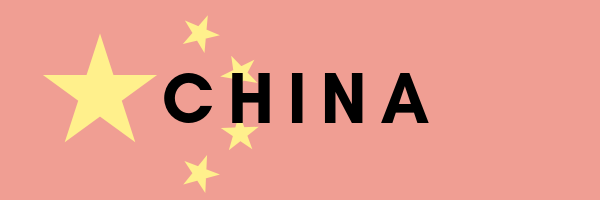
Facing diminished influence in the Inter-American Development Bank, after the election of the first American to serve as the bank’s president, China is doubling down its direct support for larger Latin American countries, namely Argentina. In September, Argentine President Alberto Fernández hailed China over the U.S. while ceding more critical infrastructure to the PRC. State-owned PowerChina is in discussion with Argentina’s state railroad for a project that would move oil and gas from Vaca Muerta to the port city of Bahía Blanca. Moreover, another state-run firm, China’s Shanghai Dredging, is looking to operate the Argentine section of the Paraná–Paraguay waterway.
China’s geoeconomic projects in South America are complemented by its aggressive medical diplomacy called the Health Silk Road. Like Russia, China is promoting its Sinovac COVID-19 vaccine throughout the region and cooperating with countries like Brazil, Chile, Mexico, and Peru for upcoming clinical trials. The United States, however, is continually cornering China and helping pivot more countries away from the PRC. Secretary Mike Pompeo’s recent visit to Suriname and Guyana, the first-ever by a sitting secretary of state, aims to solidify relations with newly elected leaders of both countries who can inherently move closer to India and away from China.
As the U.S. closes in on China politically, the country is expanding into other spheres. This is seen in their increased maritime activity, most recently their illegal fishing around the Galapagos Islands and Peru’s pacific coast. The PRC’s practice of illegal fishing could soon be complemented by formalized fishing treaties that could overtake countries’ territorial waters without controls, potentially in Argentina.
- Alberto Fernández ratified his diplomatic distance with Trump and spoke with Xi Jinping to deepen the relationship with China. China is committed to establishing a common agenda with Argentina linked to foreign trade, the defense of multilateralism and millionaire investments in infrastructure. – Infobae on 29-SEPT (content in Spanish)
- Huawei will be launching its second Cloud data center in Chile at the end of 2020. The new facility will be located in the capital city of Santiago and comes just a year after the company opened its first data center there. – Data Center Dynamics on 25-SEPT
- In Argentina, Minister of Defense Rossi called an Artillery General and ordered him to dismantle and hand over the 121 Arsenals at Battalion Fray Luis Beltrán de San Lorenzo, which has eight powder magazines. That Battalion on the Paraná River could pass into Chinese hands if they will control the waterway. – Entre Rios 24 on 23-SEPT (content in Spanish)
- The United States Coast Guard has called out China’s massive distant-water fishing fleet for its extractive practices in the waters of its Southeast Asian neighbors and off the coasts of Central America and West Africa. The criticism came as the Coast Guard unveiled an ambitious new strategy for tackling illegal, unreported, and unregulated fishing (IUU). – Radio Free Asia on 18-SEPT
- State media reports the cooperation between Brazil and China during the development of a coronavirus vaccine is a “win-win arrangement,” a Brazilian expert has said. Dimas Covas, director of the Butantan Institute, a biologic research center and vaccine manufacturer in Sao Paulo, also lauded the creation of an alliance between Chinese company Sinovac Biotech and the Butantan Institute. – Xinhua on 18-SEPT
- Energy company PowerChina moved forward in its talks with state railroad ADIF to invest in a project that would move oil and gas from Vaca Muerta to the port city of Bahía Blanca. – Ámbito on 17-SEPT (content in Spanish)
- U.S. Secretary of State Mike Pompeo made a direct pitch for fast-growing Suriname and Guyana’s new leaders to pick U.S. firms, warning of the risks of China amid an oil boom. – Digital Journal on 16-SEPT
- China has successfully sent nine satellites into orbit in its first commercial launch of a rocket from a platform at sea, state media reported. The satellites, one of which belonged to the video-sharing platform Bilibili, were deployed by a Long March 11 rocket from the Yellow Sea. – Reuters on 16-SEPT
- State media reports Argentine President Alberto Fernández spoke highly of the China International Fair for Trade in Services (CIFTIS), hailing China’s role “as a driver of demand and motorization” in trade connected to technology and knowledge. – Xinhua on 11-SEPT
- Shanghai Dredging is interested in dredging and operating the 1,240km Argentine section of the Paraná–Paraguay waterway, a key connection to international trade – China Dialogue on 08-SEPT
- Ecuador’s President Lenín Moreno has announced that his government has secured a US$2bn loan from China, just days after the declaration of a provisional agreement to receive some US$6.5bn in credit from the International Monetary Fund (IMF). – Latin News on 03-SEPT
ILLEGAL FISHING
- A huge fishing armada of Chinese vessels has moved south from the Galápagos Islands towards Peru’s territorial waters, dragging the South American country into a diplomatic Twitter row between Washington and Beijing. – The Guardian on 25-SEPT
- Ecuador’s navy confirmed a large Chinese fishing fleet of roughly 300 vessels is moving away from the Galapagos Islands and is now operating in international waters off Peru. – Voice of America on 25-SEPT
- A fleet of 300 Chinese ships was caught on a month-long illegal fishing mission off the coast of the Galapagos Islands – threatening rare species in the marine wildlife oasis, according to an investigation. The foreign fishing vessels pillaged the protected waters near the Galapagos Marine Reserve to catch squid. – NY Post on 18-SEPT
- Two billion-dollar industries in Argentina – one existing, the other imminent – stand at crossroads. The controversial development of a new pork project with Chinese investment has grabbed headlines recently. But before this is approved, President Alberto Fernández should set down and marker and generate much-needed revenues by formalizing the fishing that many Chinese vessels undertake in Argentina’s Exclusive Economic Zone (EEZ), often illegally, without paying taxes, or adhering to controls. – Dialogo Chino on 15-SEPT
- A major recent U.S. bust of a crime ring trafficking totoaba bladders and shark fins from Mexico to China highlights again that illegal fishing in Mexico is an extensive and growing problem. Public focus has centered on the poaching of the totoaba in the Sea of Cortez, where the almost-extinct porpoise vaquita marina dies in the gillnets of poachers. But illegal fishing in Mexico involves many other species and vast areas. – Brookings on 14-SEPT
VRIC MEDICAL DIPLOMACY
- The government of Brazil’s Sao Paulo state signed a contract to receive 46 million doses of a potential vaccine from China’s vaccine producer frontrunner Sinovac Biotech. But a company source told the Global Times the price of each dose would not be as low as $1.96, as what the Sao Paulo governor implied. – Global Times on 02-OCT
- China in recent months has been injecting hundreds of thousands of people with three preliminary coronavirus vaccines that are being tested for safety and efficacy. China National Biotec Group (CNBG), a subsidiary of state-owned Sinopharm, has administered two experimental vaccine candidates to around 350,000 people outside its clinical trials, CNBG chairman Yang Xiaoming said recently. – Voice of America on 28-SEPT
- The governor of Brazil’s São Paulo state, João Doria, said that the state is likely to start to immunize its population with China’s Sinovac vaccine for COVID-19 in mid-December, pending regulatory approval. – Reuters on 23-SEPT
- Lima Mayor Jorge Muñoz received 5,000 molecular-based tests from the People’s Republic of China, which will be used in the preventive health campaign called “Lima Te Cuida” (Lima Takes Care of You), which has provided health-care services to 7,800 residents in the Lima Metropolitan Area. – Andina News Agency on 10-SEPT

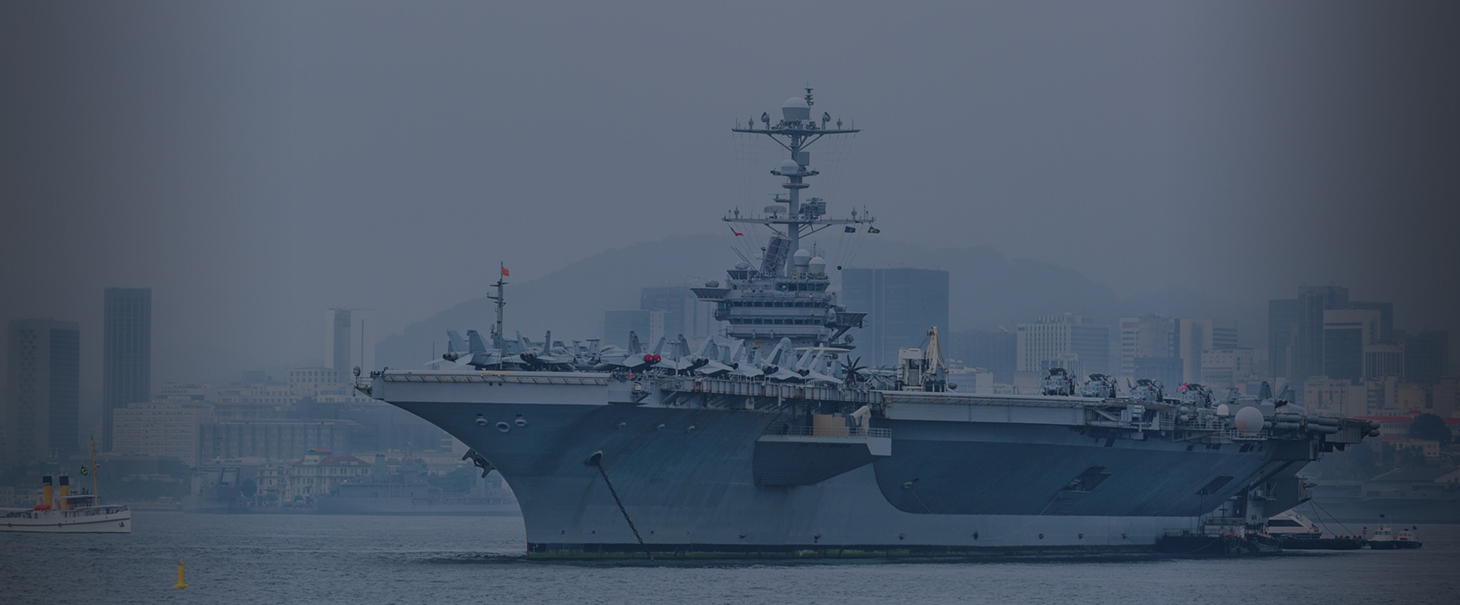
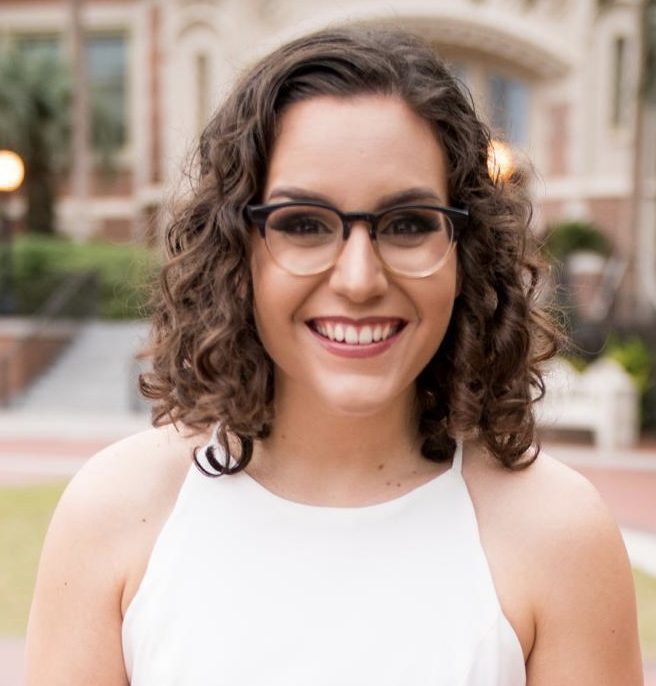 Christina Armes Hunter
Christina Armes Hunter